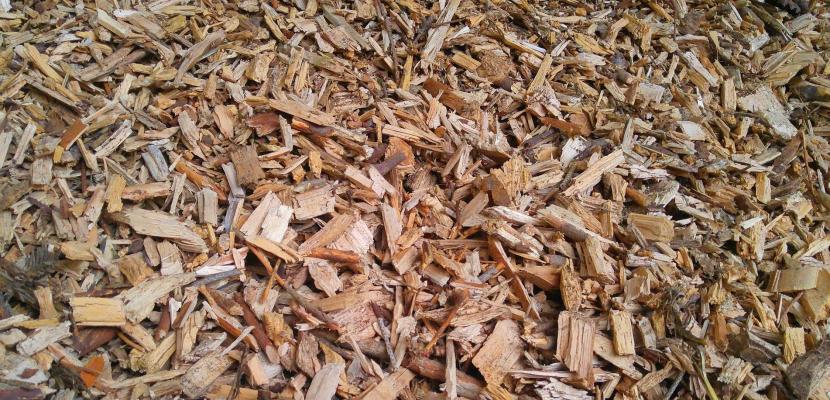Image

Eno Energy Cooperative
Published on 19 July 2021

Finland
Pohjois- ja Itä-Suomi
This is the good practice's implementation level. It can be national, regional or local.
About this good practice
Eno Energy Cooperative is a community-based enterprise located in North Karelia, Finland. It was established in 1999 by 12 local forest owners. At that time, there was no proper market for energy wood and the cooperative created that for Eno district. The initiative was well-received as the municipality wanted to profile itself as a clean and environment-friendly place.
Currently the co-operative is owned by 54 local forest owners and the aim is to generate heating energy by providing wood chips for the 3 district heating plants. Members provide about 20-30% of energy wood and the rest is acquired from different suppliers nearby, e.g. from the fellings of forests owned by the city of Joensuu. The raw materials used are small diameter trees by manual felling (15%), by multi-tree processing (70%) and logging residues (15%) from clear cut areas.
Local approach is central in the operations, in terms of its members, energy wood procurement and other related services. Municipality building and private customers have saved without taxes about 2 million € during 15 years compared to light fuel oil. Besides affordable price of heat, local benefits include net carbon dioxide emissions being reduced because imported oil is replaced by renewable forest chips (5 million kg annually) and local networks are created. The actions employ between 7-10 persons/year.
The cooperative produces 15,500 MWh energy annually which corresponds to the energy consumption of c. 800 detached houses.
Currently the co-operative is owned by 54 local forest owners and the aim is to generate heating energy by providing wood chips for the 3 district heating plants. Members provide about 20-30% of energy wood and the rest is acquired from different suppliers nearby, e.g. from the fellings of forests owned by the city of Joensuu. The raw materials used are small diameter trees by manual felling (15%), by multi-tree processing (70%) and logging residues (15%) from clear cut areas.
Local approach is central in the operations, in terms of its members, energy wood procurement and other related services. Municipality building and private customers have saved without taxes about 2 million € during 15 years compared to light fuel oil. Besides affordable price of heat, local benefits include net carbon dioxide emissions being reduced because imported oil is replaced by renewable forest chips (5 million kg annually) and local networks are created. The actions employ between 7-10 persons/year.
The cooperative produces 15,500 MWh energy annually which corresponds to the energy consumption of c. 800 detached houses.
Expert opinion
Co-operatives are an increasingly used mode of citizen-owned and run decentralised energy, expected to play an essential role in the next years in terms of meeting our climate and energy goals. This is a strong and long-lived example, in operation for more than 20 year. It demonstrates a number of the best features of co-operatives: it makes use of local resources, creates local jobs, diversifies the local economy, and replaces fossil-fuel use. The co-operative was supported by an investment from the state – this is also possible using European regional funding.
Works at
Interreg Europe Policy Learning Platform
Resources needed
The cooperative received 20-30% investment support from regional state administrative authority: Centre for Economic Development, Transport and the Environment. The net cost of the first own heating plant and the heating network was EUR 530,000 (excl. VAT).
Evidence of success
District heating replaces c. 2 million litres oil every year. As a result, the local economy saves around € 2,000,000 and net carbon dioxide emissions are reduced by near 5 million kg annually. Use of the plant and wood supply employs about 7-10 persons/ year.
The Eno Energy Cooperative has received two national level recognitions:
• Winner in heat entrepreneurship competition in 2014
• Emission reducer of the month in 2017 by Finnish Environment Institute
The Eno Energy Cooperative has received two national level recognitions:
• Winner in heat entrepreneurship competition in 2014
• Emission reducer of the month in 2017 by Finnish Environment Institute
Potential for learning or transfer
The cooperative has gained wide acceptance through transparent operation and open information delivery. Due to concrete benefits to locals, inclusion of residents and openness of the operations, Eno cooperative has become a good example of successful and environment-friendly solution that supports the transition towards oil-free and low-carbon region.
The benefits:
- Most of the capital investment stays in the area
- Positive effects on forestry and landscape
- Positive effects on employment
- Local energy source brings safety and independence during possible energy crisis
- Combustion of wood reduces carbon dioxide emissions by about 5 million kg annually
- The ashes and its nutrients can be returned to the forest
- Cheaper heat for consumers compared to oil
- Wood replaces approx. 2 million litres of oil annually
- Local economy benefits about 2,000,000 e/year
Similar heating plants could provide energy to farms with a competitive price and replace fossil fuels.
The benefits:
- Most of the capital investment stays in the area
- Positive effects on forestry and landscape
- Positive effects on employment
- Local energy source brings safety and independence during possible energy crisis
- Combustion of wood reduces carbon dioxide emissions by about 5 million kg annually
- The ashes and its nutrients can be returned to the forest
- Cheaper heat for consumers compared to oil
- Wood replaces approx. 2 million litres of oil annually
- Local economy benefits about 2,000,000 e/year
Similar heating plants could provide energy to farms with a competitive price and replace fossil fuels.
Further information
Website
Good practice owner
You can contact the good practice owner below for more detailed information.
Organisation
Eno Energy Cooperative

Finland
Pohjois- ja Itä-Suomi
Contact
Project Manager
